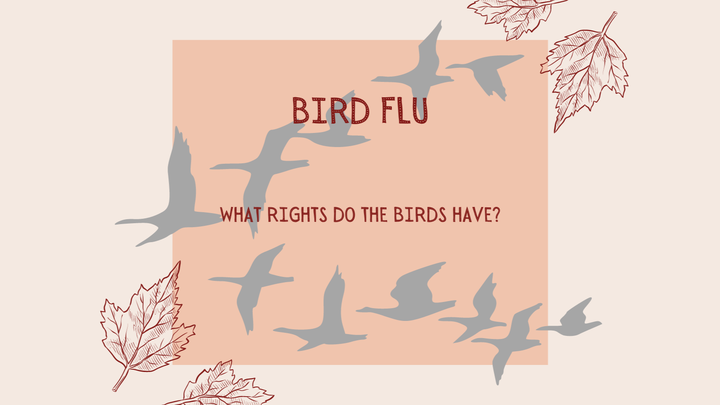
Legal investigation into Avian Influenza policy
Anyone interested in the wildlife rehabilitation world will have noticed the rise of Avian Influenza (bird flu) over the past few years. Avian Influenza is a viral disease which mainly affects birds. In some rare cases, it can also affect mammals.
During the winter of 2021/2022, owners of domestic fowl contained their birds from 29th November 2021 until 2nd May 2022. While this was undoubtedly a hardship to both owner and fowl, wildlife rescues have also been hugely impacted by Avian Influenza. Within poultry farms, if a bird tests positive, all birds on site are culled, and the site is subject to an order which means no birds can be kept on-site for 12 months. This has also been the case with wildlife rescues where, despite strict biosecurity, a positive result in one bird has meant the cull of all birds on site. Admitting susceptible species (such as gulls, waterfowl and birds of prey) means taking a considerable risk. Some rescues have decided to close to sensitive species, whereas others have chosen to remain open. There are several reasons why any species may come to rescue, the most common being cat attacks, malnutrition due to adverse weather conditions or road traffic collisions.
It is unclear whether rescues have any legal right to prevent a full cull or if the nature of wildlife rescue work is being taken into account while making current policies.
We are fundraising to commission Advocates of Animals UK to look into the current situation and provide some clarity on where rescues stand, and if anything can be done to help save the birds, whether that be an increase in biosecurity, testing before culling or if turning away susceptible species is the only reasonable option.
We hope that by having the facts in front of us, rescues can make informed decisions about their practices and do what they feel is best for their patients, volunteers, and rescue. The current situation is incredibly stressful for everyone involved, and it's time for us to gather together to support each other and find a way to work safely without fear.
Each bird is an individual. Each bird has value. Each bird deserves compassion.
Organizer
Lucy Steele
Organizer
England
Wild Things Rescue
Beneficiary